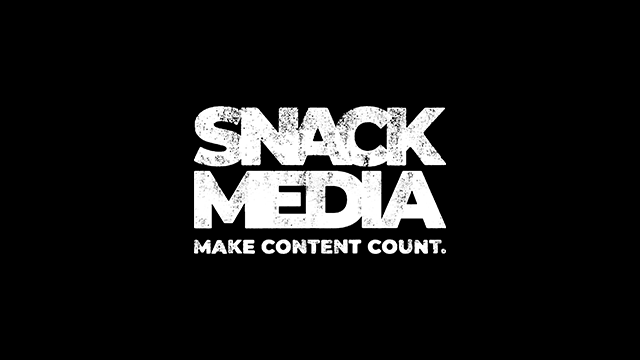From an English perspective, following on from a successful football World Cup and an electric start in the Six Nations, do you think more people will jump on the World Cup bandwagon even if they are not big rugby fans?
In England I think Six Nations and World Cups will always attract people to take their seat on the bandwagon to a certain extent as they are such big events – the pinnacles of the sport – and deal in national pride and local rivalries. Think about the Winter Olympics and the interest generated in the success of Lizzy Yarnold or the failures of Elise Christie in this country. The problem is, does anyone notice when Yarnold or Christie take to the ice outside of Olympic years?
Next year’s Olympic Games will be the second with a Sevens tournament, which will only add to that bandwagon phenomenon.
The challenge will be to convert those people into becoming real fans of the sport. That is, fans who follow club and international games, who know the storylines or narrative arcs and who lust for news and analysis. There’s a real opportunity for the sport to unify its calendar a bit more, for the Six Nations, the World Cup and the club leagues / European competitions to work together to promote each other’s content.
At the end of the day, each of these competitions see the same players playing the same sport, so if that’s attractive when it comes to the Six Nations, why shouldn’t it be as attractive in other competitions?
Do you think there is a growing demand for rugby content?
Bizarrely – given there’s already too much to consume – I think there’s a growing demand for content in every sport. But that all comes down to the fact that there’s a growing number of people who are often more entertained by the soap opera than the action on the pitch.
We’re in a position where there’s a danger that the salad eats the steak, but I do think that means there’s a clear opportunity for sports like rugby to serve their fans with enough content away from the action that gets people hooked to the storylines as much as the game itself. Maybe even moreso.
How can brands capitalise on a year where rugby is making headlines?
‘How’ is always the million dollar question, but in a World Cup year brands will always be thinking about getting involved somehow.
Look out for bandwagon jumpers here, too – those who aren’t official sponsors but whose marketing come September / October contains strangely-worded nods to that tournament everyone’s watching.
Which brands do you think have got it right when it comes to rugby?
The obvious ones are Guinness, Heineken and HSBC, who have associated themselves so closely with some of the sport’s major competitions.
HSBC have been the sponsor for Rugby Sevens tournaments for years, but now that this format is starting to see some serious growth, they’re about to see a real return on investment as more people tune in.
Guinness and Heineken, meanwhile, are super interesting case studies for any marketer to study. Specifically, how they’ve managed to make themselves so integral to the competitions they sponsor that they don’t even have to use their own names to get traction.
Whatever you think about the efficacy of France’s Loi Evin – prohibiting the advertising of alcohol and tobacco at sporting events, on TV etc – it’s given Guinness and Heineken the chance to work around it in particularly effective ways. What’s known as the Heineken Cup in the UK and Ireland is the H Cup in France. And even in this very Six Nations tournament, Guinness have simply replaced their name with the word ‘Greatness’ (same font) in the centre of the pitch in Saint-Denis, to be broadcast all over the world. The concept of Guinness = Greatness massively outweighs any benefits a mere logo could’ve had.
From an editor’s perspective, how are you covering rugby in Digital Sport?
We’re taking a huge interest in the sport this year and a lot of that comes down to the fact that this is such a big year for the sport. Sure, the Six Nations and other competitions are set-pieces which happen every year and will always get coverage on Digital Sport, but this year feels a bit different.
The fact it’s a World Cup year is big, but it’s taking place in a target market for the sport – Japan – as is the Olympic Games, where the Sevens will be a fabulous tournament and an advert for the sport. Just as cycling exploded in Britain after the 2012 London Games, will rugby take off in Japan?
Then you factor in the role digital media can play in solidifying that interest by keeping people engaged across all the different formats and I think this is an opportunity the sport can’t let slip. All the pieces are in place, but another chance like this is unlikely to come along in a hurry.
The next Digital Sport event next week centres around rugby. What can you tell us about it?
I’m excited about this one actually.
We have a really strong panel of people who not only know what they’re talking about, but who will be integral to the sport’s ability to use the opportunity it’s been afforded to really grow around the world in the next few years.
Former Scotland international Jim Hamilton, now a regular voice heard on RugbyPass and on his podcast, will be giving a short presentation on how digital content can help the sport. Then we have a panel discussion featuring Martyn Hindley from the EPCR, Shane Whelan from the Six Nations, Sven Gloor from HSBC and James Abraham from World Rugby – all giving a different perspective on where they fit into the rugby landscape and how they see the next few years panning out.
To find out more information on the Digital Sport event next week follow the link.



